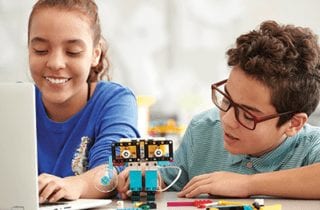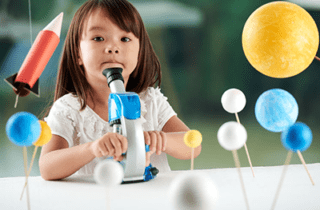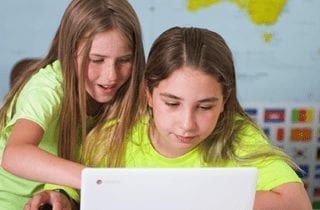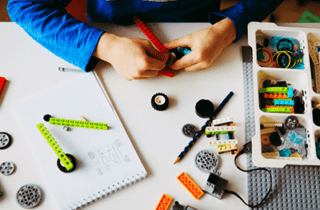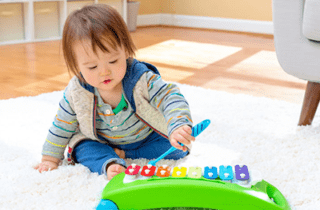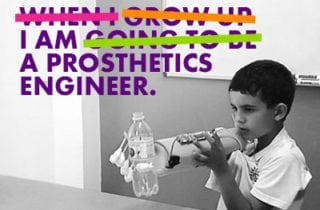Creativity and play are children’s work. They build confidence, encourage risk taking, and ultimately shape the soft skills young people need to negotiate school and careers. But, as children get older, their playfulness and creative spirit wane. They aren’t so keen on trying new things and are often afraid of failing when they do. In a recent edWebinar, “Building STEAM Confidence and Creativity in Middle School,” educational technology experts described how enriching STEAM-based learning experiences can enhance the socio-emotional skills students need to succeed now into the future.
Preparing young children for jobs that haven’t been invented yet may sound like a difficult task for educators, but a recent edWebinar showed how preK and kindergarten teachers can start developing the skills needed for future careers. Marnie Forestieri, the CEO of Young Innovators, and Debby Mitchell, Ed.D., a Young Innovators curriculum writer, explained the process for creating lesson plans that include projects introducing science, technology, engineering, arts and math (STEAM), noting that “STEAM happens naturally in young children as they explore and investigate the world around them.”
In this edWebinar, join Dr. Jenny Nash from the LEGO® Education team to learn how to help reverse the trend in your school by providing enriching experiences that build creativity and confidence with learning through play.
“We have students who are passionate, engaged and comfortable with technology, yet students are living in silos and not equipped with the 21st century skills which they genuinely need to be part of the global workforce of tomorrow.” This statement by Amy McCooe, CEO of Level Up Village, during a recent edWebinar hit home with her two co-presenters, Esra Murray, Fifth Grade Teacher at International School Dundee, CT, and Fran Kompar, Director Instructional Technology and Digital Learning at Wilton Public Schools, CT. Kompar expressed her frustration, “We are now 20 years into the 21st century, and we should be preparing our students for the work of their time, not the future because the future is now.” The presenters emphasized that the global skill most vital to students is learnability: the desire, passion, and capacity to learn, the ability to synthesize and evaluate information, and the willingness to take on new challenges. The impact of developing learnability skills will ensure that our young learners apply their knowledge and skills to the global workforce and become lifelong learners.
Join this edWebinar for a learning experience with LEGO® Education to explore how you can incorporate creativity, inquiry, and collaboration in early childhood instruction to build important foundations for student learning.
Discover ways you can engage young minds in STEAM learning to help them investigate questions, solve problems and think of potential improvements.
In this edWebinar, you’ll come to understand how music as an “auditory tool” can support young children’s learning in science, technology, engineering, and mathematics—all while developing their innate music capacity.
STEAM lessons offer educational benefits beyond technological literacy, such as collaboration, creativity, and critical thinking. Educators who incorporate STEAM into the classroom are preparing students now for jobs that don’t exist yet by giving them confidence in problem-solving, noted Dr. Azadeh Jamalian, Adjunct Assistant Professor at Teachers College, Columbia University, Head of Education Strategy at littleBits. For many educators, though, blending STEAM with traditional subjects can still seem daunting. During the edWebinar “Bringing Hands-On Coding and STEAM into Your District or Classroom,” Dr. Jamalian offered attendees insights into four key factors that can support successful STEAM integration.


